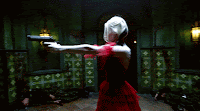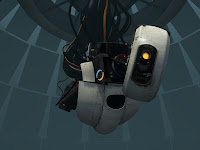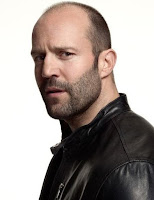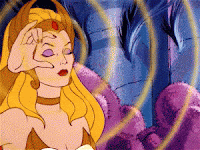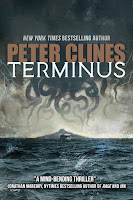Hey, look! Lori made a request a few weeks back and we’re fulfilling that request. Because that’s how we roll here!
So, the question is details. How much is too much? How do you know if it’s not enough?
This won’t be great to hear but… this is pretty much impossible to answer. Mostly because writing is art and all art is subjective and a lot of the stuff we call “description” is a huge chunk of the art portion of this equation. Hypothesis? Theorem?
Anyway, my book isn’t going to be anything like your book. Your style isn’t going to be anything like my style. And we each probably have different ideas about how we want our respective stories to land. And that’s before we even touch on basic structure ideas, that different chapters and scenes are going to have different pacing and purposes and will need different levels of description and detail. Within the earlier restrictions I mentioned about our individual styles and all that.
Really filling you with confidence right now, aren’t I?
I thought about this a bit, and I think the best thing I can do is give you my own personal rules for how I tend to approach these things in my own writing. The sort of rules-of-thumb I use to decide if I spend a paragraph describing someone or something, or a full page, or maybe just half a sentence. And like any kind of writing advice, this is just what works for me, so it might not work for you. It definitely won’t work for that guy. But hopefully it’ll get you thinking and considering things in your own work…
So here’s my three guidelines for adding (or not adding) details/descriptions in my writing.
1) Are these details necessary
There’s an idea I’ve brought up once or thrice here before, Damon Knight’s information vs noise. Facts we don’t know are information. Facts we already know are noise. We like getting information and we pay attention to it. Noise is annoying, and we tend to ignore it whenever we can.
In my mind, describing objects, places, or processes that we all know is kind of a waste of my word count and the reader’s patience. Especially if these things aren’t somehow important to my plot or story. We all know what a smartphone looks like. And a grocery store. And how to pump gas. I don’t want to spend my precious words on things like this. I want to use them to describe the strange pendant that woman slipped into my pocket when she bumped into me. Or that alien in the middle of the road I might have just hit with my car.
What’s that in the back? Well, yeah, there are a lot of makes and models of phones out there. Very true. But honestly… how many of them look all that different, especially once they’re in a case? I mean, think of the BBC Sherlock with Benedict Cumberbatch. His smartphone was a huge part of his character and how he interacted with others, and the show itself changed how everyone does texting in television and movies.
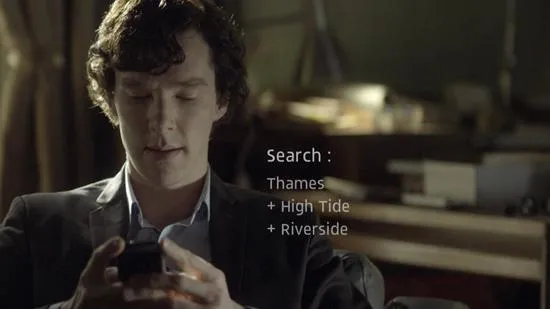
Off the top of your head,…can you say if Sherlock’s phone was an Android or iPhone? You probably can’t because the truth is it’s completely irrelevant. It would’ve been a waste of time to make any sort of distinction.
In fact, as I’m scribbling this, I’d like to expand on the information/ noise idea a bit. I think the first few times we encounter obvious noise in a story, we tend to think there’s a reason for it. That the author has a purpose for describing something we’d otherwise consider not worth mentioning. I mean, they wouldn’t give us half a page of description of the waitress and give her a name if she wasn’t kind of important to the story, right? This has to be information. And that’s why this sort of thing can cause a lot of frustration, because at some point the readers realize the waitress is irrelevant and it doesn’t matter what kind of phone she uses and they’ve just been processing a lot of noise that isn’t necessary to the story.
Now, before anyone gets too grumpy, I want to move on to my next wishy-washy rule…
2) Do these details serve a purpose
A purpose? Wait, isn’t that what I was just saying? Am I having a stroke?
When I say a detail serves a purpose, I mean it might not be a necessary, integral part of my plot or story, but I still have a reason for including it. Maybe it’s helping me set the tone or the mood or it’s hinting at something about a character or location or an object. Whatever it is, if you asked I could explain the function of this bit of description.
For example, what color and model of car Yakko drives is probably irrelevant to my plot. It’s important that he has a car, but nothing hinges on him having, for example, an economy car vs a sports car. The reader could picture either and nothing would change in my story. But if I call it his fire-engine red midlife crisis on wheels? That’s giving you piles of extra information, isn’t it? It’s not necessary, but it serves a purpose.
A few key things here. First is word choice. Since I’m putting in this description for a reason, I should really make sure the words I choose push that purpose. Like with Yakko’s car. It could’ve just been a red sports car, but describing it the way I did told you it’s a red sports car and about Yakko, and about how I (or maybe the narrator?) want you to view him in this story.
Second is not to go overboard. It’s easy to describe more and more and more and come up with a rationalization for all of it. Like, if I want to show how wealthy someone is, I could give lush descriptions of every item in their office and it’d all fall nicely under the umbrella of “showing how wealthy they are.” But I could also probably do this by focusing on just one or two things– maybe that painting or the weird glass sculpture of.. whatever that is. Friggin’ modern art. Costs a bundle and I can’t tell if it’s supposed to be a flower or a naked woman or maybe it’s just a shape? I don’t know. Some people have money to burn, right?
I’ve got one more details guideline for you. I really think this is the most important thing about including details. If you want to ignore the last two things, fine, but please consider this one…
3) Are these details affecting the pacing
Almost universally, things are going to get faster and tenser as my plot and story progress. That’s just basic narrative structure. It picks up its pace as it moves along. And I want my readers to feel that quickening of events, that rise of tension. I want it to carry them along like a wave carries a surfer.
Description almost always brings things to a halt. It can’t be helped. In the real world we can actually see/ hear/ feel things and absorb all those details almost instantly, but on the page we have to write them out. A single glance can take four or five paragraphs to cover everything we saw.
This means it’s very easy for details to mess up my pacing. If things are moving at even a mild pace, one or two paragraphs of description can slow things down and knock us out of the story for a moment. If we’re near the end and things have really picked up speed, hitting even a few lines of excess description can be jarring. So I need to be careful about where and when I deploy them.
It’s my own personal style, but I’ve mentioned before that I like action (as in fists and guns and swords and car chases action) to feel like it takes about as long to read as it would take to happen. As close as possible, anyway. It doesn’t sell a blinding-fast martial arts fight to write out each strike, each block, each counter. Same with running in sheer terror from the monster in the woods, which has two primary horns on each side of its head, three smaller curled horns clustered around them, and a sort of ridged brow over each eye, which are a fiery red. These are times when–IMHO–pausing to add a lot of detail can really kill the pacing or tension. It knocks us out of the fast-paced flow of the moment and suddenly we’re standing around counting eyebrow ridges instead of running for our goddamned lives.
Also, overall, I feel it’s better to describe things earlier than later. The pacing should be slower in the beginning of a story, so it makes a brief pause here or there fit in better. Plus, it makes sense to describe things when we first see them (or when we eventually stop running away from them)
And again, there could always be an exception to this. There might be an all-new element in the third act that has to be described in detail. But really, if you think about it, structure kind of demands these things be rare. If I’m introducing a lot of necessary stuff in my third act… something may have gone wrong somewhere.
So that’s it. Those are the three ways I tend to screen my descriptions and details to figure out if they’re good, excessive, or just completely unnecessary. Hope they help a little.
And if you’ve got a question or a topic request, please let me know.
Next time here, I’d like to talk a little bit about one of our planet’s great philosophers, Ludwig Wittgenstein.
It’s going to be so much fun.
Until then, go write.




